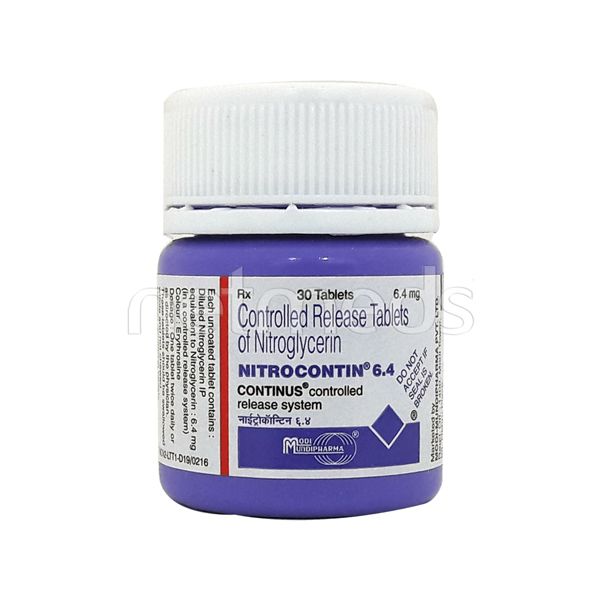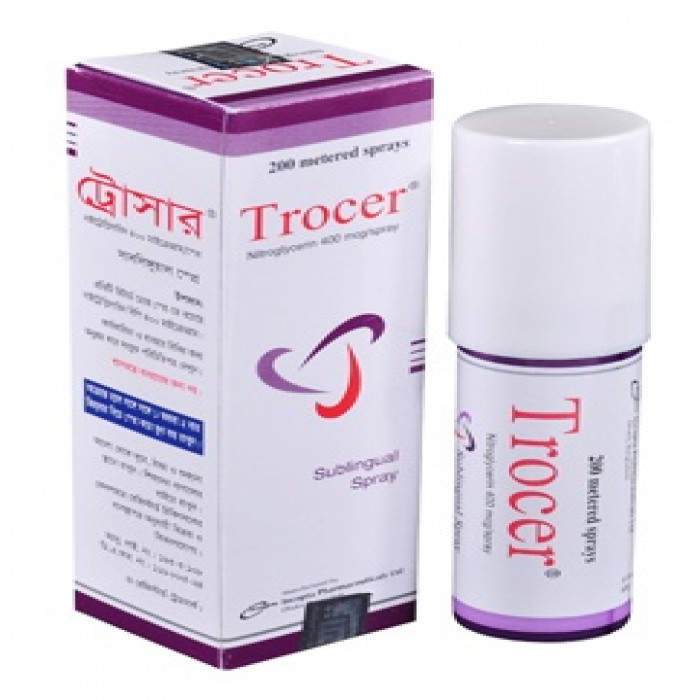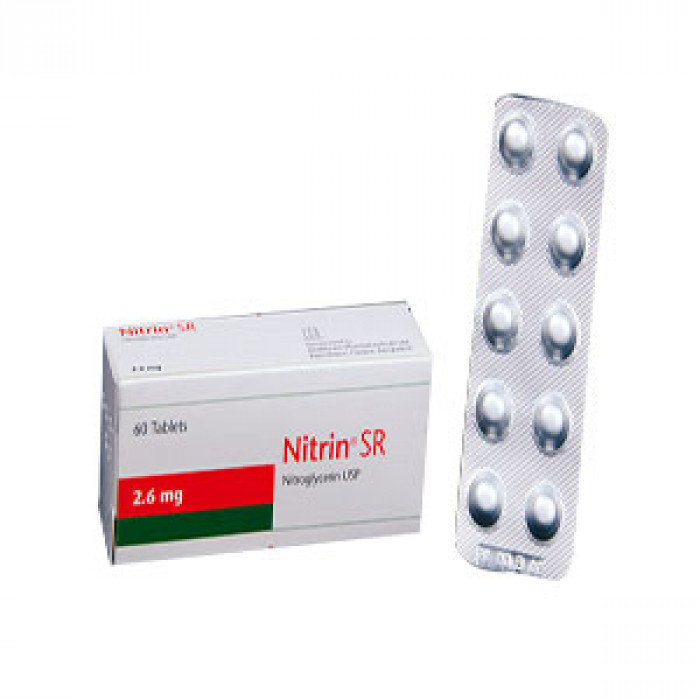
✔ 100% Authentic Product
👁️ Currently Viewing 340
Nitrocontin 6.4 (25pcs Pot)
Generic Name: Glyceryl Trinitrate (Nitroglycerine)
Manufacturer: City Overseas Ltd.

100% Genuine Products, Guaranteed
Safe & Secure Payments, Always
Fast, Secure & Efficient Delivery
Proper Packaging
 Cash on Delivery - All over Bangladesh
Cash on Delivery - All over Bangladesh Regular Delivery - 8-12 Hours, Dhaka City*
Regular Delivery - 8-12 Hours, Dhaka City* Regular Delivery - 24-48 Hours, All Over Bangladesh*
Regular Delivery - 24-48 Hours, All Over Bangladesh* ফ্রি ডেলিভারি! - ১৪৯৯ টাকা+ অর্ডারে ঢাকা
শহরে ।
ফ্রি ডেলিভারি! - ১৪৯৯ টাকা+ অর্ডারে ঢাকা
শহরে । ফ্রি ডেলিভারি! - ২৯৯৯ টাকা+ অর্ডারে ঢাকার
বাহিরে ।
ফ্রি ডেলিভারি! - ২৯৯৯ টাকা+ অর্ডারে ঢাকার
বাহিরে ।
✅ Description:
Indications
Chest pain caused by the heart is treated and prevented using Nitrocontin 6.4. (angina). When the heart muscle is not receiving enough blood, angina develops. Blood arteries are opened up and relaxed by this medication, allowing for easier blood flow to the heart. The dosage and duration of Nitrocontin 6.4 should be followed as prescribed by your doctor.
Pharmacology
Nitroglycerin induces vascular smooth muscle relaxation, resulting in a vasodilator action on both peripheral arteries and veins. Venous dilation promotes peripheral blood pooling and reduces venous return to the heart, lowering left ventricular end-diastolic pressure (preload), whereas arterial relaxation lowers systemic vascular resistance and arterial pressure (afterload).
Dosage & Administration
Dosage should always be adjusted according to the requirement and response obtained by the individual patient and the severity of the anginal pain. For adults, one Nitroglycerin 2.6 mg sustained released tablet or capsule in the morning and evening. This should be taken empty stomach.
Interaction
Nitroglycerin increases the antihypertensive effects of vasodilators, calcium antagonists, and beta-adrenergic blockers through the dilation of peripheral blood arteries. High blood pressure can be caused by taking nitrates with tricyclic antidepressants and alcohol at the same time. Blood pressure drops when nitrates are used with phosphodiesterase type 5 (PDE5) inhibitors including sildenafil, vardenafil, and tadalafil. Aspirin reduces nitroglycerin clearance while increasing its hemodynamic effects. When taken in conjunction with heparin, nitroglycerin may decrease heparin's pharmacologic effects. The bioavailability of dihydroergotamine is increased by nitrates.
Contraindications
In individuals who have a known allergy to nitroglycerin, other organic nitrates, or nitrites, or to the medicine's excipients, nitroglycerin is contraindicated. Acute myocardial infarction, severe anemia, head trauma, cerebral hemorrhage, or closed-angle glaucoma are additional contraindications.
Side Effects
Headaches are common at the beginning of therapy, although they generally go away within a few days. If the headache continues, the dose should be reduced. Tachycardia, postural hypotension, syncope, cyanosis, and methemoglobinemia are some of the other adverse symptoms.
Pregnancy & Lactation
Nitroglycerin should not be taken during pregnancy or lactation unless your doctor says it's very necessary.
Precautions & Warnings
In people who are susceptible to closed-angle glaucoma, nitroglycerin should be taken with care. Sudden cessation of medication, like with other medicines used to treat angina pectoris, might cause symptoms to worsen. When stopping a long-term therapy, the dosage should be progressively lowered over several days, and the patient should be closely watched. To prevent the risks of hypotension and tachycardia, it's important to pay close attention to hemodynamic monitoring and clinical state when using nitroglycerin in the early stages of acute myocardial infarction.
Storage Conditions
Keep away from light and heat in a cool, dry area. All medications should be kept out of the reach of youngsters.
Disclaimer:
ePharma sole intention is to ensure that its consumers get proper
information as musch as possible. Although we do not guarantee the
accuracy and the completeness of the information that provided and
here information is for informational purposes only.
The information contained herein should NOT be used as a substitute
for the advice of a qualified physician. This may not cover
everything about particular health conditions,
lab tests, medicines, all possible side effects, drug interactions,
warnings, alerts, etc. Please consult your healthcare professional
and discuss all your queries related to any disease or medicine. We
intend to support, not replace, the doctor-patient relationship.








